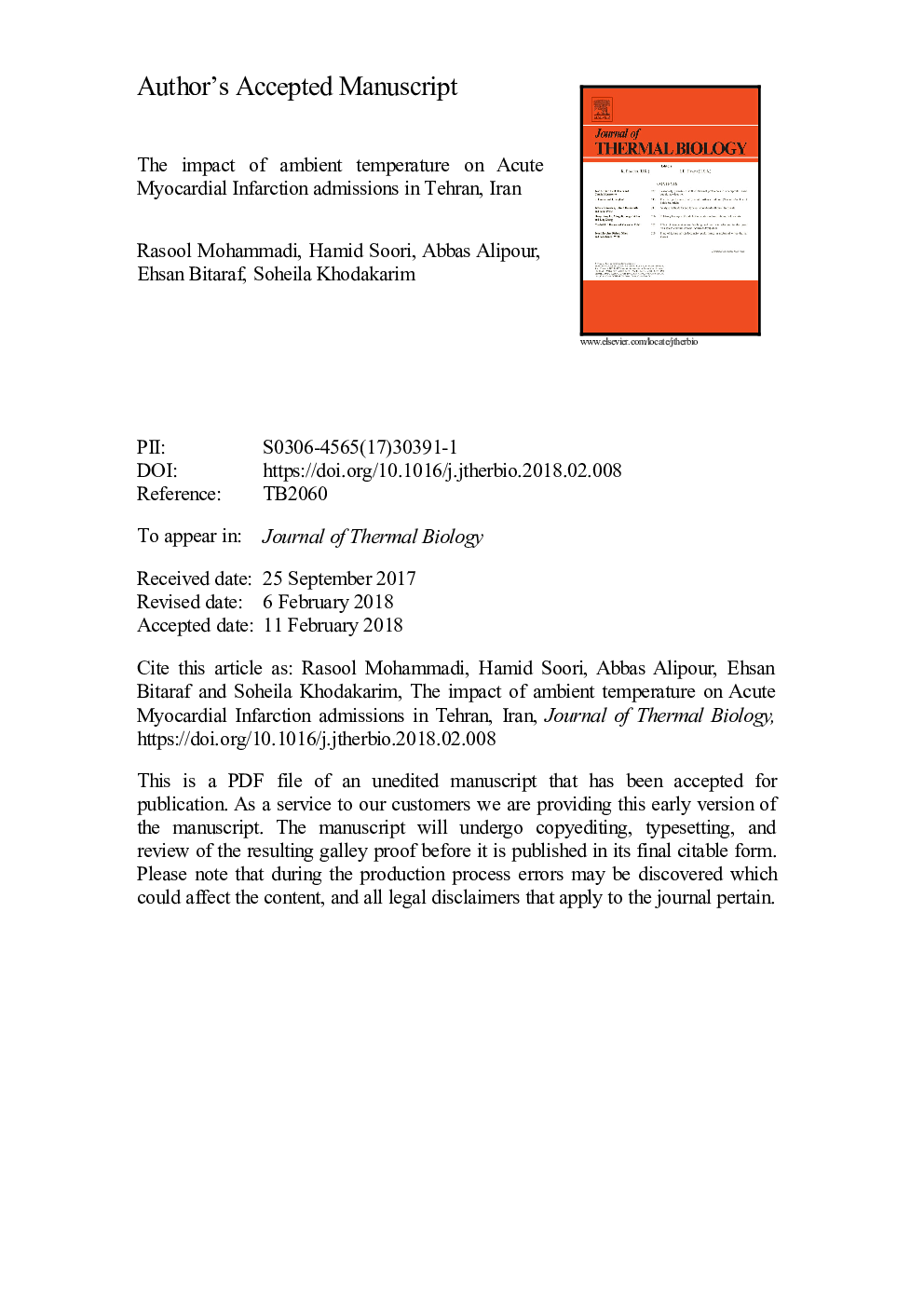| Article ID | Journal | Published Year | Pages | File Type |
|---|---|---|---|---|
| 8650076 | Journal of Thermal Biology | 2018 | 28 Pages |
Abstract
While the effect of temperature on risk of cardiovascular events is well documented, few studies report evidence from the Middle East. In this study, we investigate the short-term effect of ambient temperature on admissions for acute myocardial infarction (AMI) in Tehran, Iran. We used a case-crossover design combined with a distributed lag non-linear model to examine nonlinear and delayed associations between ambient temperature and AMI admissions from 2013 to 2016. We also examined hot and cold effects on AMI admission by gender and age categories (â¤â¯65 years old and >â¯65 years old). Both hot and cold temperatures increased the risk of AMI admissions. Effects of high temperature appeared immediately on the current day and lasted for 3 days, whereas cold effects became apparent after 2 days and persisted for about 8 days. The early acute increase in risk associated with high temperature was followed by a deficit, thus suggesting evidence of a harvesting effect. In additions, males and those aged â¤â¯65 years old were more vulnerable to high temperatures.
Keywords
Related Topics
Life Sciences
Agricultural and Biological Sciences
Agricultural and Biological Sciences (General)
Authors
Rasool Mohammadi, Hamid Soori, Abbas Alipour, Ehsan Bitaraf, Soheila Khodakarim,
